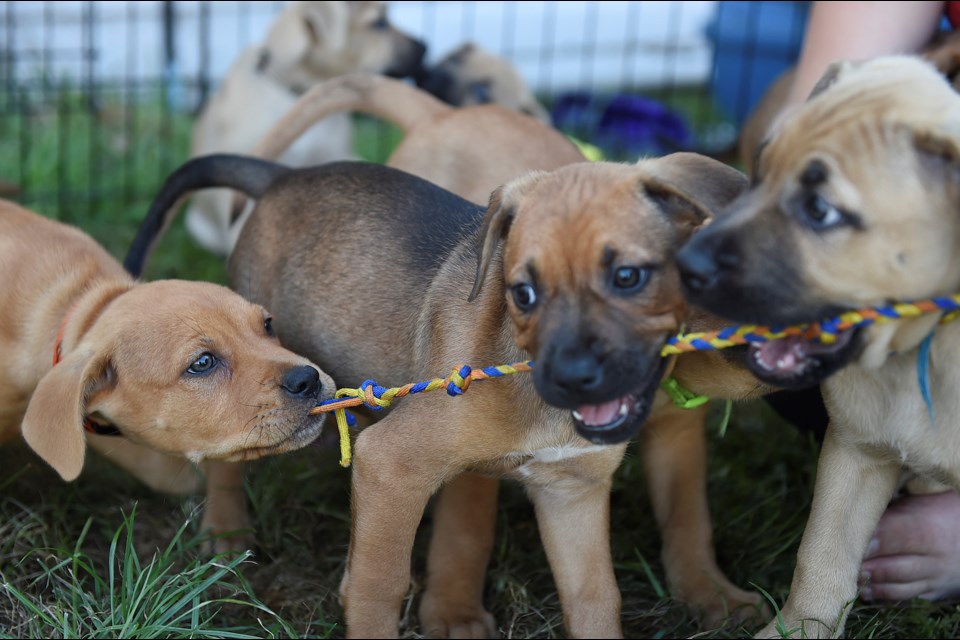In the span of 15 minutes, Lily’s life went full circle — from hovering at death’s door to being a new mom in grand fashion.
Last month, the lab/mastiff/pug cross was in a California shelter, one faced with sprawling capacity issues.
Her pregnancy and impending birth came as a surprise to the staff, who were faced with an agonizing choice. Because the facility was already bursting at the seam, euthanizing the dog before it gave birth was the only choice.
That’s where staff from the Vancouver-based charity Leash of Hope Assistance Dogs entered the fray.
They adopted Lily and brought her to Vancouver in early August, and she’s now the proud mom of nine puppies.
The problem now, however, is what to do with those pups. The group focuses on fostering and training assistance dogs for people with disabilities, and the pups are at a critical age — nine weeks — where intensive training and care is required.
They group needs both foster homes and about $9,000 to help the dogs through the group’s one-year training program. Lily may also be fostered, though the group has yet to put her through the formal assessment due to her pregnancy.
“When they’re young, to be with mom in one household is fine but now they really need one-on-one attention,” said Danielle Main, program coordinator for Leash of Hope Assistance Dogs. “We’re really at the point where it’s critical that they get individual attention so that they learn how to walk on leash, not eat specific things and to learn to behave and to settle.”
Main helped found her organization in 2014 with a mandate to provide assistance dogs to people with a range of ailments: those with high-functioning autism, post-traumatic stress disorder, high anxiety, dissociative disorders and others with spinal injuries.
She noted that some organizations providing assistance dogs are very specific about the types of training they receive and, in turn, the clients they can help.
Main’s group aims to fill that void for people like herself and her founding partner: Main is legally blind, while the group’s co-founder lives with cerebral palsy and requires a wheelchair.
“I don’t look stereotypically blind, but the amount of times I’ve had to bribe someone to help me go somewhere is unbelievable — I was getting hit by traffic, people on bikes, people on skateboards and walking into things,” she said. “It was limiting where I was going, but I’m still considered too-high functioning for other organizations. That can be solved quite easily with a dog.”
The dogs are put through a year-long training course before being released to a client. During that time, the foster family is linked up with prospective clients to make the transition easier on all parties involved.
“We feel that the bond between the client and the dog is mostly what drives the dog to work,” Main said. “We put a great quantity of skill in to the dog beforehand to make them able to function in public.”
Those looking to help the organization can do so by emailing [email protected].
@JohnKurucz



